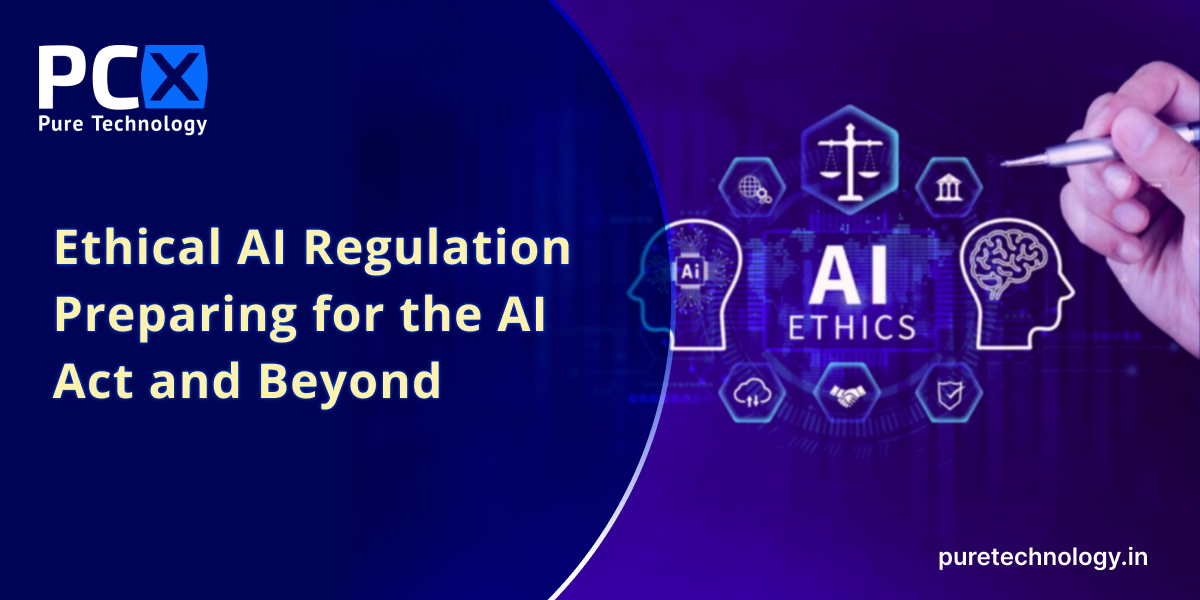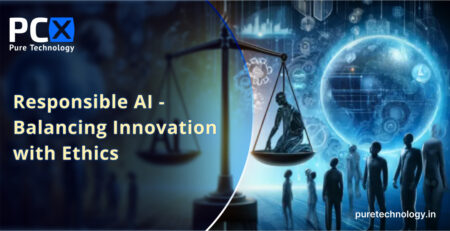Ethical AI Regulation: Preparing for the AI Act and Beyond
Introduction
The rapid advancement of artificial intelligence has brought immense benefits but also raised complex ethical, legal, and societal challenges. In response, regulators worldwide are crafting frameworks to ensure AI development and deployment are safe, transparent, fair, and accountable. The European Union’s AI Act—the first comprehensive legal regulation targeting AI—embodies this trend, setting new standards for ethical AI use. As it phases in from 2024 through 2027, businesses globally must prepare to comply with evolving requirements. Pure Technology helps organizations navigate the complexities of ethical AI regulation, ensuring readiness, compliance, and responsible innovation.
Overview of the EU AI Act
The EU AI Act, effective since August 2024, categorizes AI applications by risk level and prescribes tailored obligations:
- Unacceptable risk AI: Completely banned practices such as social scoring and manipulative targeting of vulnerable groups became illegal from February 2025.
- High-risk AI systems: Used in healthcare, employment, critical infrastructure, and law enforcement, these must meet stringent standards by August 2027.
- General-Purpose AI (GPAI): Foundation models like large language models face transparency and safety requirements starting August 2025, with legacy models receiving a transitional period until 2027.
The Act mandates detailed documentation, mandatory risk assessments, human oversight, data governance, and regulatory notifications depending on AI classification.
Phased Implementation Timeline
- February 2025: Ban on unacceptable AI practices activated.
- August 2, 2025: Obligations for GPAI providers take effect, including transparency and risk mitigation.
- August 2, 2026: Majority of provisions for high-risk AI systems become applicable.
- August 2, 2027: Full compliance deadline for all AI systems in scope, including legacy models.
This staggered timeline balances innovation with regulatory certainty, allowing companies time to adapt and scale compliance efforts.
Key Ethical Considerations in AI Regulation
- Transparency: Providing clear explanations of AI decision-making processes for users and regulators.
- Accountability: Assigning responsibility for AI outcomes and establishing effective oversight.
- Privacy and Data Protection: Safeguarding personal data used for training and inference.
- Bias Mitigation: Ensuring AI does not discriminate or reinforce harmful societal biases.
- Safety and Security: Guaranteeing AI systems operate reliably and securely across intended use cases.
Preparation Strategies for Businesses
- Understand Your AI Risk Classification: Identify which components of your AI systems fall under unacceptable, high, or low risk per the AI Act.
- Implement Robust Risk Management: Conduct thorough impact assessments, document design and testing processes, and establish human-in-the-loop controls.
- Transparency and Documentation: Prepare detailed technical files explaining training data, algorithms, and limitations.
- Adapt Underlying Models: Review and update AI models to comply with safety, accuracy, and fairness requirements.
- Engage with Regulatory Authorities: Monitor evolving guidelines and participate in consultations for clarity and influence.
- Invest in AI Governance: Build cross-functional teams fostering ethical design, compliance tracking, and incident response.
Beyond the EU: Global AI Regulation Landscape
EU’s AI Act sets a precedent inspiring regulatory developments globally in the US, Asia, and other regions. Companies operating internationally must navigate a complex patchwork of rules emphasizing ethical AI that respects human rights, consumer protection, and innovation incentives.
Conclusion
The AI Act marks a milestone in ethical AI regulation, balancing technological progress with societal protection. Businesses that proactively prepare for its phased implementation will gain a competitive edge through trust, risk reduction, and compliance. Pure Technology is committed to partnering with you in this journey towards responsible, transparent, and ethical AI innovation—today and beyond.
Call us for a professional consultation












Leave a Reply